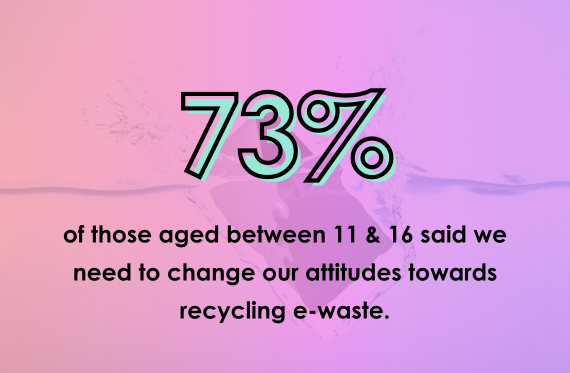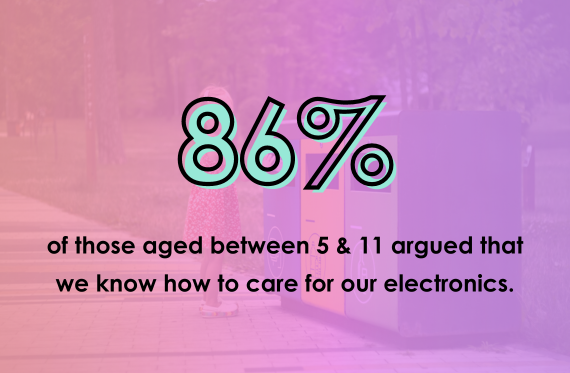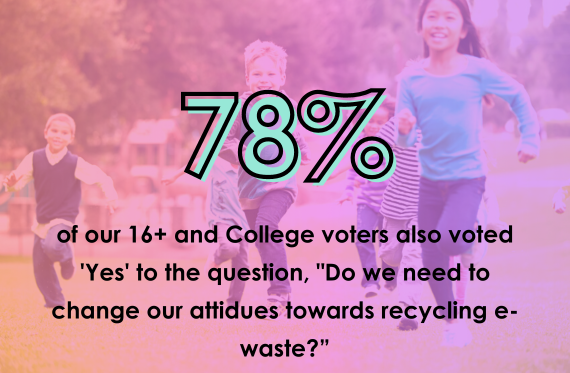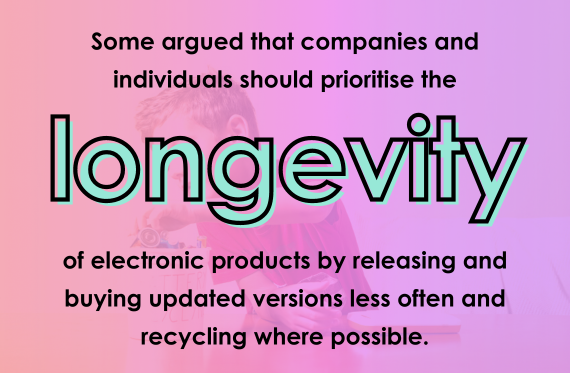Total votes
Age 5-11 votes
Age 11-16+ votes
How many old phones, laptops, tablets or TVs do you have in your house? How many do you just end up chucking in the bin?
If you do, you definitely are not alone. Two in five people in the UK have said they still own a smartphone they don’t use. And the Health and Safety Executive estimates that about 2 million tons of Waste Electrical and Electronic Equipment is discarded every year.
The issue is not just restricted to high ticket items like phones and TVs. No doubt you’ve noticed the number of disposable vapes that are in use and need to end up somewhere. The latest research from Material Focus shows that huge numbers of these end up in the bin. They call it one of the most pressing issues with electronic recycling today.
In celebration of Zero Waste Week (4th-8th September), voters explored the mounting problem of e-waste and considered different ways of tackling the problem. This VoteTopic marked the beginning of the 2023/24 school year!
Secondary and College voters all considered: “Do we need to change our attitudes towards recycling e-waste?” while Primary 5-11 voters discussed: “Do we know how to care for our electronics?”

"I know how to look after electronics but I don't always do it!"

"Companies should not release new products as often to cut down on unnecessary updates."

"More should be done to re-use electronics to make their user life much longer, all electronics should be made to last longer instead of constantly renewing things such as mobiles."




Thank you so much to our partners for such a great response for our first topic of the new school year!
Moira Thomas, Director of Sustainability at Curry's, the electrics retailer.
Niamh McBride, Local Authority Partnerships Manager at Material Focus. Material Focus are not for profit that has a mission to stop electricals being hoarded and thrown away, and ensure they’re reused and recycled instead.
Oliver Franklin-Wallis, journalist and author of Wasteland. His book explores the journey of what happens when we throw things away.
Dr Alison Stowell, Senior Lecturer at University of Lancaster. Her research focuses on social and organisational responses to the challenges of waste.